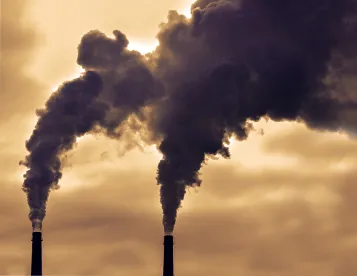The Trump Administration has taken steps to roll back Greenhouse Gas (GHG) emissions standards applicable to most automobiles in the United States. On April 2nd Environmental Protection Agency Administrator Scott Pruitt announced plans to roll back an Obama Administration determination that left the Midterm Evaluation standards in place for the 2022-2025 GHG emission limits for light-duty vehicles. The Midterm Evaluation standards, finalized in 2012, had imposed heightened requirements for fuel efficiency in automobiles.
In addition to claiming that the Obama Administration’s decision was too rushed (it was published in January of 2017), EPA determined that the GHG emissions standards imposed by the Midterm Evaluation are too challenging for auto manufacturers, and result in burdensome costs on low-income consumers. EPA also questioned whether technology will advance far enough under the current timeline to meet the standards currently set for 2022-2025, and called the previous administration’s assumption that they would do so “optimistic.” In addition, the Agency cited costs as a reason to readdress the Midterm Evaluation levels, stating that in the new rule making, “EPA plans to thoroughly assess the impacts of the standards on affordability and reconsider the impacts of this factor in selecting an appropriate level of the standards.”
One criticism of the current light duty vehicle GHG standards is that customer demand for larger vehicles makes it difficult to adequately cut down on fuel emissions, as vehicle size, and hence vehicle mass, limits how efficient a vehicle can be. Without a change to demand for smaller vehicles, automakers have questioned whether they will be able to sell the kinds of cars that could meet the current GHG standard.
The governors of both New York and California declared that such a roll back would result in unacceptable pollution and announced plans to oppose the changes. California currently has a waiver under the Clean Air Act to impose stricter standards for GHG emissions than what the federal government requirements, and EPA may revoke that waiver in a future rulemaking addressing automotive GHG emissions. While the EPA has not explicitly addressed whether it will revoke California’s waiver, Administrator Pruitt has taken the position that principles of cooperative federalism mean that one state should not be able to dictate standards for the rest of the county and that the EPA will set a national standard for GHG emissions.
Automakers and suppliers that have made significant investments to meet the heightened Obama standards may be frustrated by the rollback. On the other hand, automakers and suppliers of larger vehicles and associated components who rallied against the tighter GHG standards will be pleased with EPA’s announcement.
As for the logistics of the new rule, Administrator Pruitt announced that the EPA will team up with the National Highway Traffic Safety Administration to develop a notice and comment rulemaking to establish “more appropriate” GHG emission standards. Under the final rule establishing the Mid-term Evaluation process, a determination by the EPA to maintain the current standards would be a final agency action, but a determination that the standards are not appropriate would lead to the initiation of a rulemaking to adopt new standards. Any new rule will not be final until the rulemaking process has concluded, meaning that the decision is not reviewable by a court until the EPA concludes and finalizes the rulemaking process.
In the near term, any challenges brought by New York and California against the decision are likely to slowly work through the federal courts. In the longer term, EPA will move ahead with a new rulemaking for light duty GHG emissions, unless prohibited from doing so by an adverse decision on the change to the rule. While the notice and comment period for consideration of the appropriate GHG standards have not been announced, the final rule is required to be issued by April 1, 2020.





 />i
/>i
